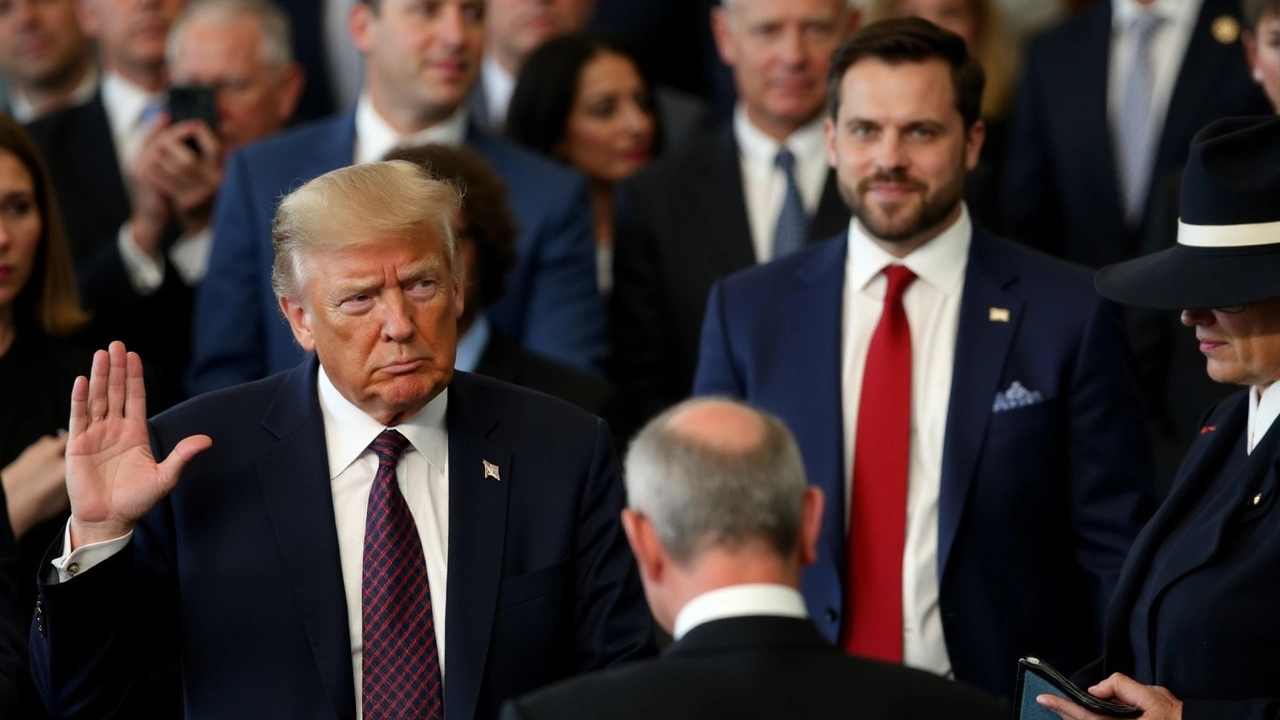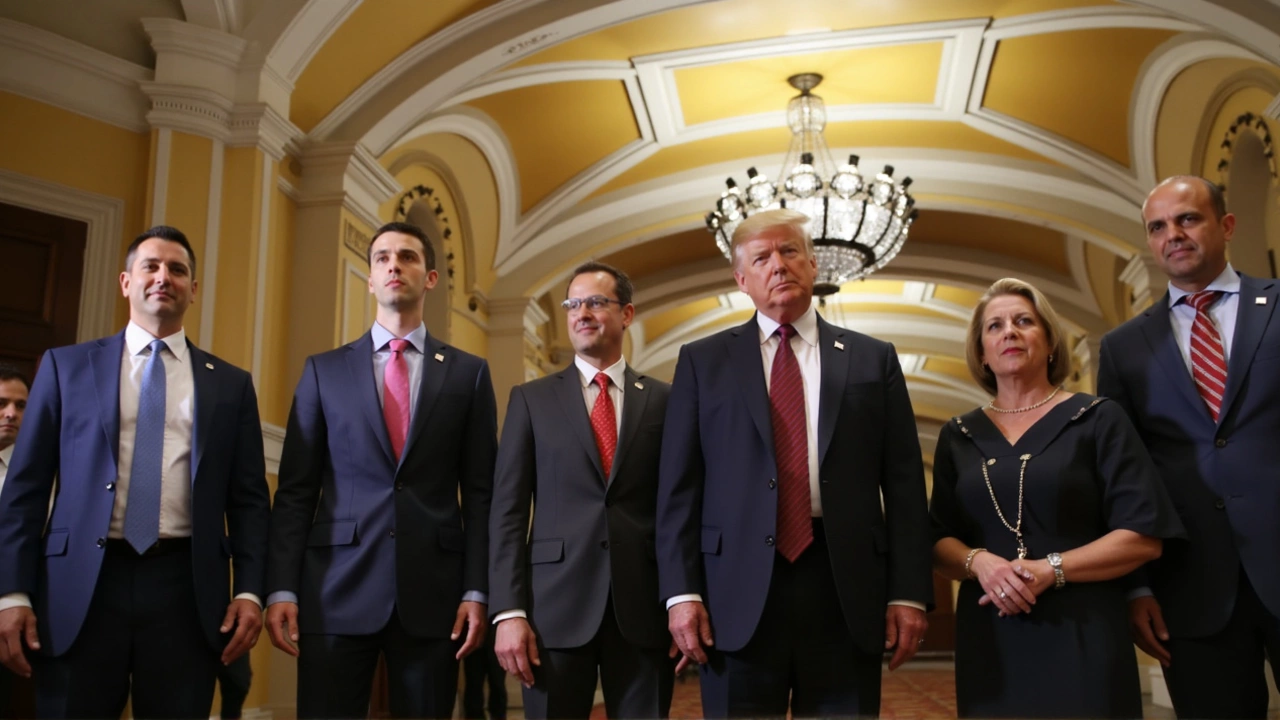Introduction
As President Trump begins his term in office, he is swiftly moving forward with a sweeping set of plans designed to revamp U.S. immigration policies. Announced on his Inauguration Day, these executive orders are setting a new, stringent path that seeks to address his campaign's cornerstone issue. With a vigilance that underscores his promise to fortify the borders and halt illegal immigration, these policies have triggered an immediate response among immigrants and advocates who fear the potential consequences and humanitarian impact these changes may bring.
The Executive Orders' Key Components
Among the most noteworthy of these executive orders is the declaration of a national emergency at the southern border. With this, Trump aims to justify the use of armed forces to bolster border security, including the construction of a much-criticized border wall. This decision underscores his administration's narrative of a border in crisis, yet it raises alarms about the feasibility and humanitarian impact of such measures. Alongside these proposals, significant alterations are coming to the asylum-seeking process, as the administration plans to end what is known as the 'catch and release' practice and introduce a requirement for asylum seekers to remain in Mexico during their processing period. These orders also outline a suspension of refugee resettlements over a four-month period, which Trump argues is essential for upgrading vetting processes.
Implications on Asylum and Refugee Policies
The administration's ambition to dramatically reshape the asylum landscape is especially concerning for immigrants' rights groups. By eliminating the opportunity for individuals to claim asylum if they enter the country undocumented, Trump intends to address perceived vulnerabilities in the current system. However, these changes are expected to face significant legal challenges, given existing international agreements that grant asylum seekers the right to request protection irrespective of their mode of entry. The emphasis on vetting stems from the campaign's rhetoric on national security, but for many, it represents a deviation from the United States' longstanding humanitarian commitments.
Enforcing Security and Legal Measures
Alongside these policy changes, President Trump is pursuing the formation of federal homeland security task forces. These groups will explicitly target gang members and habitual criminals within the country. Moreover, a particularly contentious provision allows for the reinstatement of the death penalty for undocumented immigrants who commit capital crimes against law enforcement officers. Critics argue that these measures could lead to racial profiling and violate the rights of individuals within the legal system. In their eyes, these initiatives do not account for the nuanced circumstances that drive immigration, nor do they sufficiently address the root causes prompting individuals to flee their countries.
Responses and Criticisms
The Trump administration's plans have drawn substantial criticism from figures including outgoing Secretary of Homeland Security Alejandro Mayorkas, who actively defended the Biden administration's policies as more balanced and humane approaches to immigration. He, along with various advocacy groups, expresses concerns that these executive orders undermine the integrity and fairness of the immigration system by prioritizing harsh enforcement over compassionate solutions. Critics argue that these actions present more risks of harm to already vulnerable communities, painting a picture of heightened fear and instability among immigrant populations nationwide. The clash over immigration policy is emblematic of the broader ideological battle that continues between differing administrations over how best to address the nation's complex relationship with immigration and security.

Legal Challenges and Future Outlook
Given the repercussions these orders may entail, both public and legal resistance is anticipated. Some legal experts highlight possible infringements on laws that uphold the right to seek asylum, while others question the constitutional legitimacy of certain mandates. Regardless of litigation prospects, the broader narrative is clear: Changing U.S. immigration policy to this extent inevitably leads to vigorous debate on both domestic and international stages. While the administration emphasizes security and order, advocates stress the necessity for a humane approach that respects the foundational values upon which the United States was built. The unfolding outcomes of such substantial political maneuvers remain a dynamic and potentially transformative chapter in the nation's ongoing dialogue over immigration and its implications.
